The most tolerant countries of Europe are named: Ukraine, Moldova, Russia, Armenia and Georgia at the end of the rating

Eastern and Western Europeans Differ on Importance of Religion, Views of Minorities, and Key Social Issues
People in Central and Eastern Europe are less accepting of Muslims and Jews, same-sex marriage, and legal abortion
The Iron Curtain that once divided Europe may be long gone, but the continent today is split by stark differences in public attitudes toward religion, minorities and social issues such as gay marriage and legal abortion. Compared with Western Europeans, fewer Central and Eastern Europeans would welcome Muslims or Jews into their families or neighborhoods, extend the right of marriage to gay or lesbian couples or broaden the definition of national identity to include people born outside their country.
The continental divide in attitudes and values can be extreme in some cases. For example, in nearly every Central and Eastern European country polled, fewer than half of adults say they would be willing to accept Muslims into their family; in nearly every Western European country surveyed, more than half say they would accept a Muslim into their family. A similar divide emerges between Central/Eastern Europe and Western Europe with regard to accepting Jews into one’s family.
In a separate question, Western Europeans also are much more likely than their Central and Eastern European counterparts to say they would accept Muslims in their neighborhoods.1 For example, 83% of Finns say they would be willing to accept Muslims as neighbors, compared with 55% of Ukrainians. And although the divide is less stark, Western Europeans are more likely to express acceptance toward Jews in their neighborhoods as well.
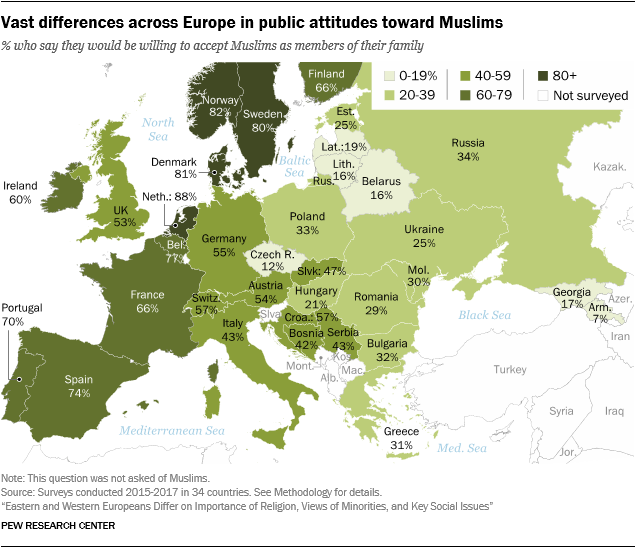
The continental divide in attitudes and values can be extreme in some cases. For example, in nearly every Central and Eastern European country polled, fewer than half of adults say they would be willing to accept Muslims into their family; in nearly every Western European country surveyed, more than half say they would accept a Muslim into their family. A similar divide emerges between Central/Eastern Europe and Western Europe with regard to accepting Jews into one’s family.
Majorities favor same-sex marriage in every Western European country surveyed, and nearly all of these countries have legalized the practice. Public sentiment is very different in Central and Eastern Europe, where majorities in nearly all countries surveyed oppose allowing gays and lesbians to marry legally. None of the Central and Eastern European countries surveyed allow same-sex marriages.
In some cases, these views are almost universally held. Fully nine-in-ten Russians, for instance, oppose legal same-sex marriage, while similarly lopsided majorities in the Netherlands, Denmark and Sweden favor allowing gay and lesbian couples to marry legally.
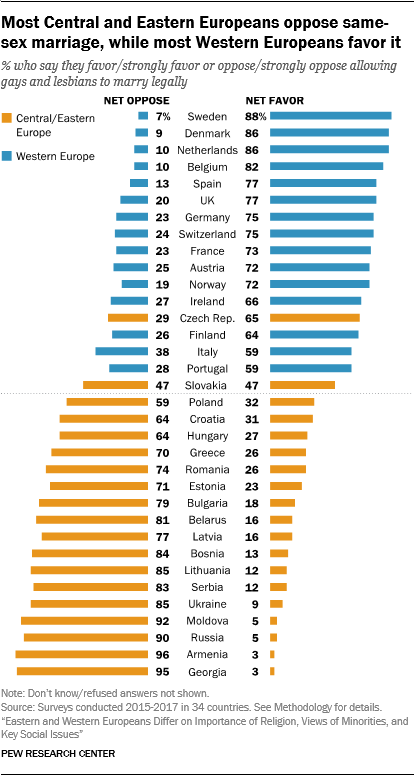
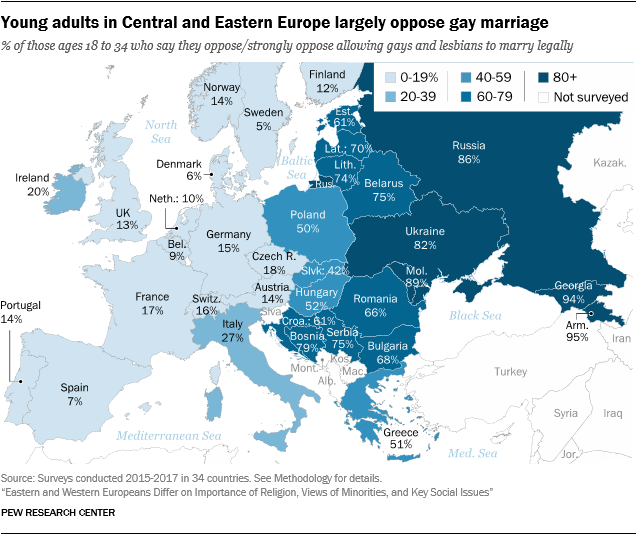
Survey results suggest that Europe’s regional divide over same-sex marriage could persist into the future: Across most of Central and Eastern Europe, young adults oppose legalizing gay marriage by only somewhat narrower margins than do their elders.
For example, 61% of younger Estonians (ages 18 to 34) oppose legal gay marriage in their country, compared with 75% of those 35 and older. By this measure, young Estonian adults are still six times as likely as older adults in Denmark (10%) to oppose same-sex marriage. This pattern holds across the region; young adults in nearly every Central and Eastern European country are much more conservative on this issue compared with both younger and older Western Europeans.
Source: www.pewforum.org




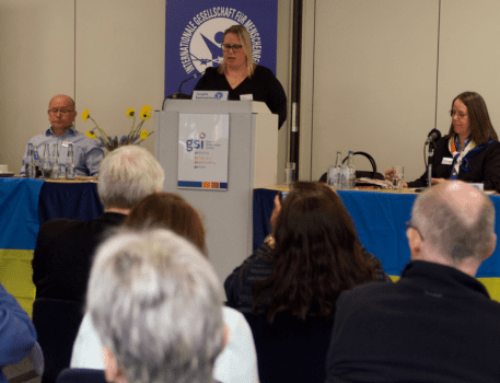

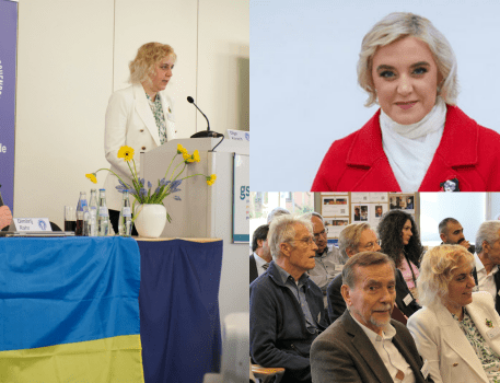
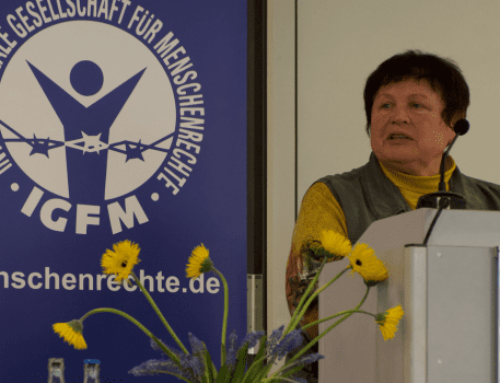
Leave A Comment